E-commerce SEO can often lead to confusion, with pervasive myths steering strategies in the wrong direction. This guide tackles seven common misconceptions. From the belief that keyword stuffing boosts traffic to misunderstandings about duplicate content penalties.
It offers clarity on how social media influences organic search results and dispels falsehoods surrounding platform constraints. In addition, it challenges link-building fallacies specific to e-commerce SEO domains while weighing organic against paid search effectiveness. Ensuring online stores don’t waste resources chasing ineffective tactics or overspending on ads for improved rankings.
Myth: More Keywords Guarantee Higher Traffic
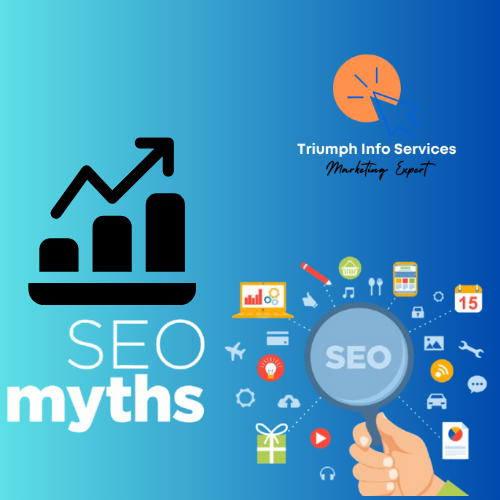
Search engines have evolved far beyond their simple origins. Today, they punish websites for keyword stuffing – a dated strategy that can lead to significant penalties or even removal from search results. Such tactics not only damage rankings but also overlook the user experience, leading to poorly written content and high bounce rates.
The landscape of SEO prioritizes quality over quantity when it comes to keywords. Gone are the days when throwing in as many terms as possible could work; modern strategies call for selecting highly relevant long-tail keywords that closely match what people actually seek online. Utilizing these specific phrases captures targeted traffic more likely to engage with your site meaningfully.
These users may be closer to making a purchase or finding an exact solution on your e-commerce platform. Moreover, strategic placement of primary keywords within titles and headers coupled with natural integration throughout text improves both readability for potential customers and recognition by search engine algorithms. Understanding the searcher’s intent is crucial for crafting content.
Triumph Info Services offers expertise in using strategically placed niche-related terms for meaningful engagement and growth.
Maximize Rankings Without Overspending on Ads
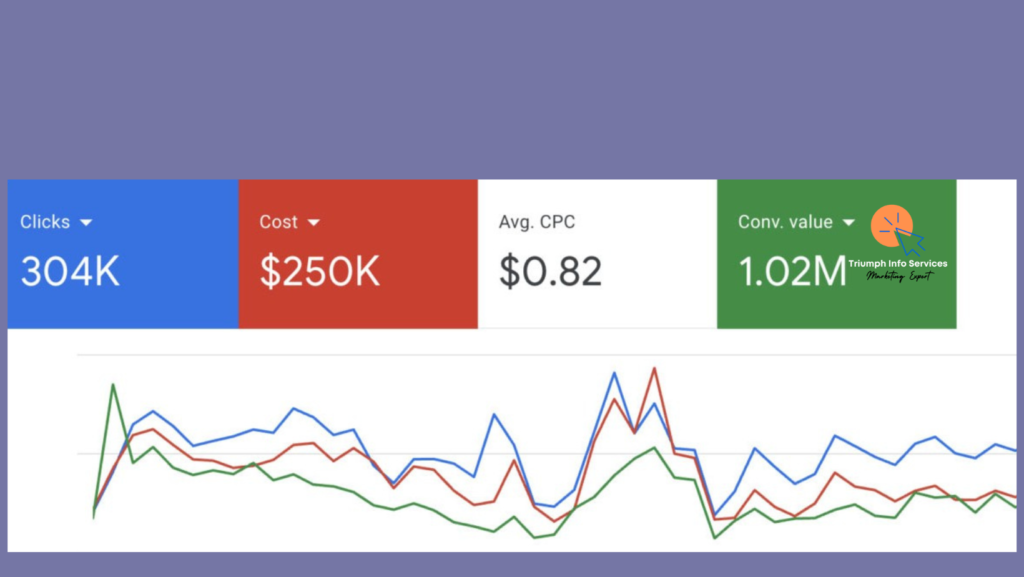
E-commerce SEO businesses often think they need to throw cash at ads to climb the search rankings. Yet, organic traffic strategies powered by savvy SEO can be far more cost-effective in the long run. And they build trust with consumers who may shy away from overt advertising.
Content is key here; it’s not just about piling up text on a page. Shops should create informative articles that answer questions and add value for their audience. Think of this as giving readers something worth their time.
Information they can use. Which Google recognizes as signals of quality content. On-page optimizations are another piece of the puzzle where investments have lasting benefits.
Simple things like meta tags packed with targeted keywords, crisp image alt texts for accessible visuals, and user-friendly URLs help customers find exactly what you’re offering without clicking on an ad first. Backlinks still hold sway too. But focus all efforts on securing links from respected industry-related websites rather than splurging indiscriminately across lesser-known corners of cyberspace.
Then there’s leveraging local searches. A gemstone many overlook when polishing e-commerce strategy gems! This tactic hones in specific geographic markets through tools like Google My Business alongside customer reviews.
An authentic way to improve visibility organically while fostering credibility among regional shoppers looking nearby. Finally don’t forget: staying nimble lets these tactics shine brighter over time since SEO isn’t static. It evolves just as online consumer habits do.
Debunking Duplicate Content Penalty Concerns
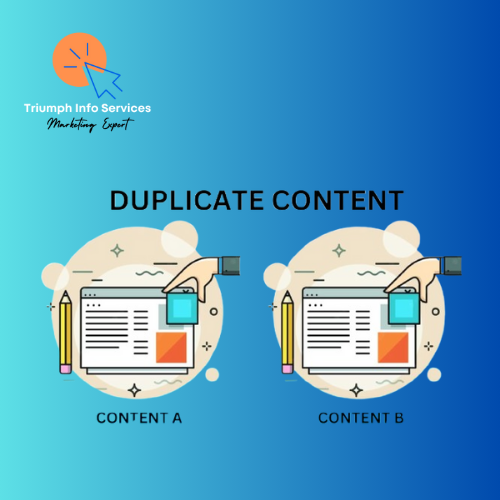
When it comes to duplicate content, the fear of Google penalties looms large in e-commerce SEO. Let’s get one thing clear: Google doesn’t penalize for duplicate content unless it looks like a deliberate game to cheat the system. What happens instead is that search engines aim to pick out what they see as the “canonical” or most authoritative piece and show just this version.
This means if your site has several pages with matching text, you’re not necessarily on Google’s blacklist but you might feel an indirect impact. For instance, any kind of trust signals from other sites (like backlinks) could end up scattered among these clones rather than boosting just a single page. This can water down each clone’s perceived authority.
It also doesn’t help when web crawlers waste valuable time trawling through these replicas when they could be indexing fresh material. A big problem for sizable online retailers especially. Not only that, customers might stumble into multiple listings with identical info which can make them scratch their heads in confusion over where exactly what they need lives on your website.
To manage repetitive content, use canonical tags, 301 redirects, unique product descriptions, and no index commands. When sharing content, ask partners to use canonical links to credit the original post. Remember though there are instances when actually yes.
If someone’s creating duplicates in masse across several domains trying wicked keyword ploys then indeed Google may bring out its penalty card! The bottom line here? Prioritize high-grade singular material primed more toward fulfilling user needs than fixating solely on dodging duplicity allegations.
And really why wouldn’t we all prefer flying straight anyway? At Triumph Info Services this focus cascades right through our workstream supporting clients to navigate away from needless duplication drama while finding ways their stories stand apart organically standing taller within results served up by today’s sharp-eyed search platforms.
Social Media Impact on SEO Results
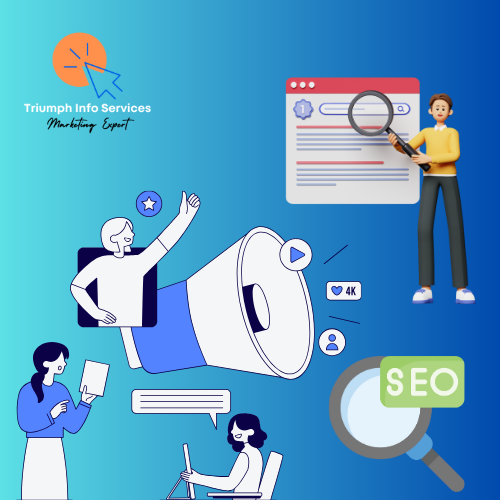
Social media can indirectly enhance SEO for e-commerce sites. It does so primarily by driving more traffic to your website and raising brand awareness. When people engage with social content, their clicks lead them back to the site itself.
This increased activity signals search engines that there’s something of value offered, which could benefit rankings over time. Another perk is how social platforms facilitate spreading content further than it might otherwise reach on its own. More eyes mean more potential shares, and those shares may translate into precious backlinks from other websites including high-profile ones like journalists or bloggers looking for resources or inspiration.
Being active online helps bolster recognition among consumers who are then likelier to conduct searches directly related to the business. These branded queries show credibility in the digital space, leading to better positions and higher conversion rates. Profiles on networks such as Facebook or LinkedIn often appear alongside official company pages in search results, providing an additional touchpoint for curious individuals to discover offerings.
This multi-channel exposure helps solidify SERP footing, turning every post, tweet, and update into another step toward top-tier status in a competitive virtual marketplace.
The Truth About Ecommerce Platform Limitations

E-commerce platforms can be the backbone of a digital store, but they often come with limitations that may hinder your brand and growth. For instance, while Shopify shines in user-friendliness, its customization options are far from limitless. To change themes or introduce unique features might mean navigating complex coding challenges or shelling out extra cash for apps.
Scaling up poses another hurdle; both Shopify and WooCommerce work well until your business reaches a certain threshold – then costs potentially skyrocket due to higher-tier plans or hosting demands. Magento handles scaling better yet requires deep pockets for its upkeep. When it comes down to SEO – critical for drawing customers – most platforms offer only bare-bones tools.
Tweaking meta tags is possible but digging into more intricate practices such as URL structure changes? That’s usually off-limits on places like Shopify, meaning you could miss out on vital optimization opportunities unless you find workaround solutions through plugins. Overreliance on apps and plugins also presents issues: excessive use not only leads to potential compatibility dramas but can slow down site speed significantly which affects customer experience negatively.
And we all know every second counts online! Moreover, if diverse payment methods matter because let’s face it convenience drives sales nowadays then beware! Platforms like Shopify add transaction fees when steering clear of their in-house systems.
Cutting profit margins even thinner, especially for small businesses where every penny matters. Lastly moving across borders isn’t painless either since many services lack full support in translating content effectively nor do they deal effortlessly with multiple currencies without external help. Extra steps that complicate reaching a wider audience seamlessly.
Choosing an e-commerce platform means matching capabilities closely against your vision and technical skills. Always ensure customer trust stays intact by considering budget constraints, global ambitions, security, and data protection mandates.
Link Building Myths in E-commerce Sites
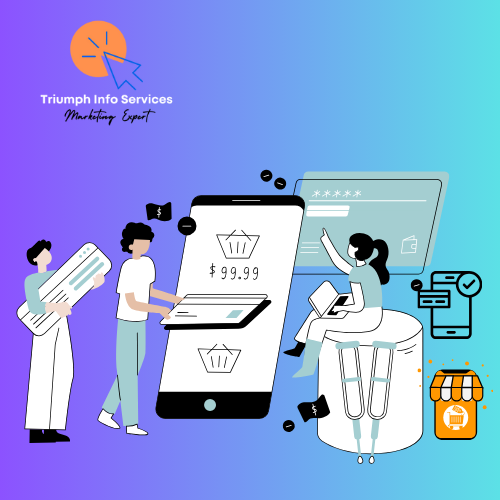
One common mistake is thinking any link, no matter where it comes from, will boost your eCommerce site’s ranking. Links must be industry-specific to truly pack a punch. Say you’re selling organic beauty products; snagging a backlink from an acclaimed beauty blog or wellness mag goes miles further than one from some random news outlet.
Another myth that needs busting: “Set and forget” link building. Nope, not going to cut it! For e-commerce sites fighting tooth-and-nail in competitive markets, they’ve got their work cut out for them with ongoing efforts to clinch those top search engine spots and adapt to the ever-shifting algorithms.
Then there’s this tall tale: great content means links just come rolling in of their own accord. That killer content won’t amount to much without giving it a nudge through social sharing or collaborations. In other words, getting proactive about building those links is key.
And hey, let’s clear up something else while we’re at it. Directories aren’t all bad news. If you stick with reputable ones specific to your niche or locale like Yelp or Yellow Pages.
That can mean good things for SEO after all! And let this sink in.
Good linking isn’t solely about pleasing the algorithm gods; if done deftly. It plays its part in boosting brand visibility and driving targeted traffic which could well lead straight down conversion lane!
Organic vs. Paid Search Effectiveness Misconceptions

One big mistake some e-commerce SEO businesses make is believing paid ads guarantee a fast return on investment. Yet, things like ad fatigue and budget restrictions often lead to lackluster results from pay-per-click campaigns. Sure, these ads can get you seen quickly but might not be the best move financially for everyone.
For smaller companies with fewer funds, it’s risky to rely solely on paid search. It could dry up budgets in no time. Organic SEO takes more patience but gives steadfast rewards without breaking the bank in the process.
Now let’s address competitive industries where organic search gets underestimated frequently. There are effective ways for even small-scale operations to stand out organically. Smart tactics such as using less common keywords or optimizing local searches go a long way without needing deep pockets.
There’s an incorrect notion that getting found naturally online doesn’t cost anything. The effort behind climbing SERPs requires ongoing content updates, tweaking site setups, and building links, which all take expertise and investment. Savvy users now tend toward trusted non-paid entries, and Google has been making room at SERP’s top spots for these types of listings.
This makes striving towards solid natural rankings worth considering, resulting in viable leads without continual cash flow into advert bids.
Triumph Info Services dispels common misconceptions about e-commerce SEO, ensuring online stores don’t fall for myths that harm visibility. Myths can lead to wasted resources and suboptimal strategies. By debunking these misunderstandings with evidence-based practices, Triumph provides clear guidance to elevate your store’s search engine rankings effectively.
Free from the burden of outdated beliefs, businesses thrive as they drive targeted traffic more efficiently and compete strongly in a crowded marketplace. Trust expertise; dismiss fiction for factual SEO success.
References:
https://medium.com/@servicestriumphinfo/myth-busted-more-keywords-dont-always-mean-higher-traffic-f405294a70c2
https://medium.com/@servicestriumphinfo/maximize-rankings-without-overspending-on-ads-d42a2acf3824
https://medium.com/@servicestriumphinfo/debunking-duplicate-content-penalty-concerns-200ec081be37
https://medium.com/@servicestriumphinfo/social-medias-impact-on-seo-results-1047d7dfb7ff
https://medium.com/@servicestriumphinfo/the-truth-about-e-commerce-platform-limitations-500553de65c2
https://medium.com/@servicestriumphinfo/e-commerce-siteslink-building-myths-in-e-commerce-sites-50264fe1afd3
https://medium.com/@servicestriumphinfo/organic-vs-paid-search-debunking-effectiveness-misconceptions-e788646f11f4
